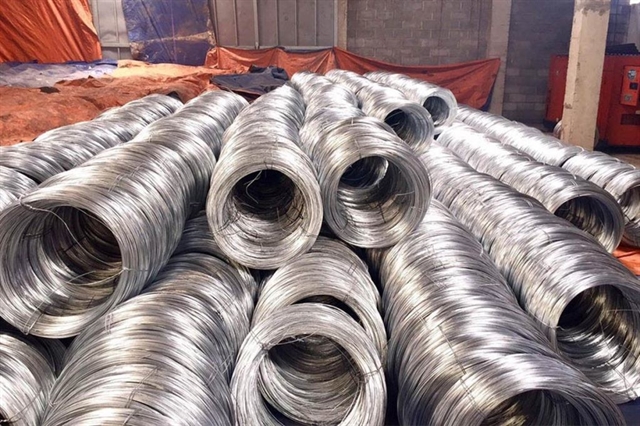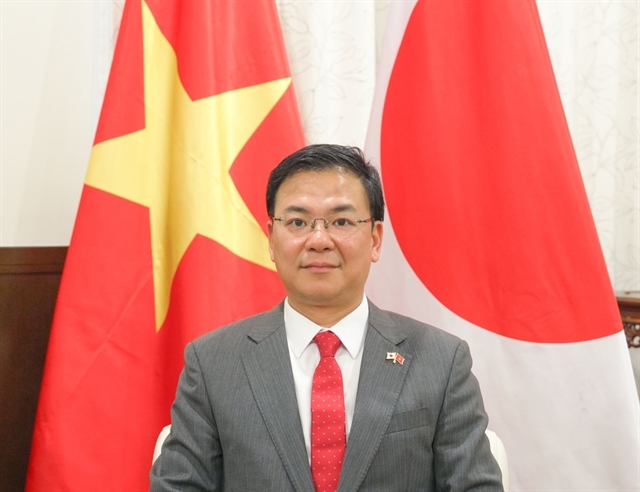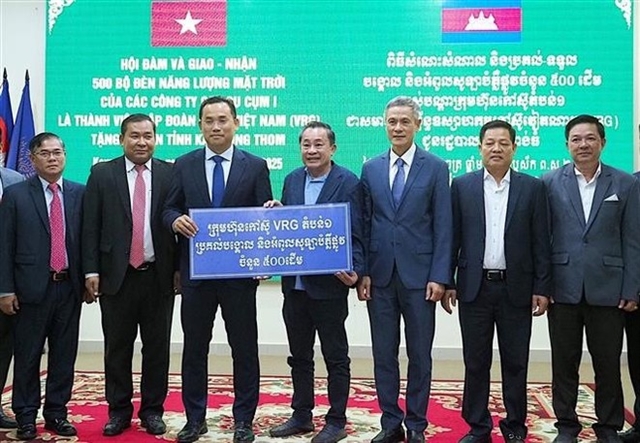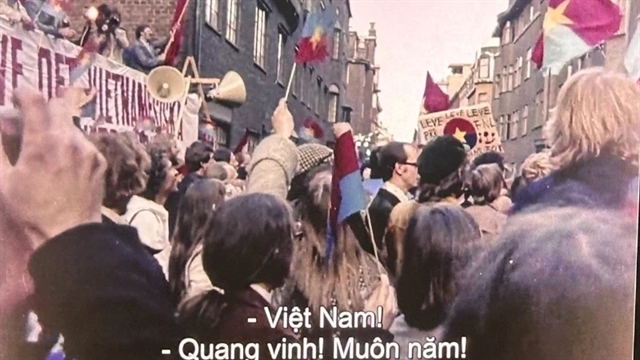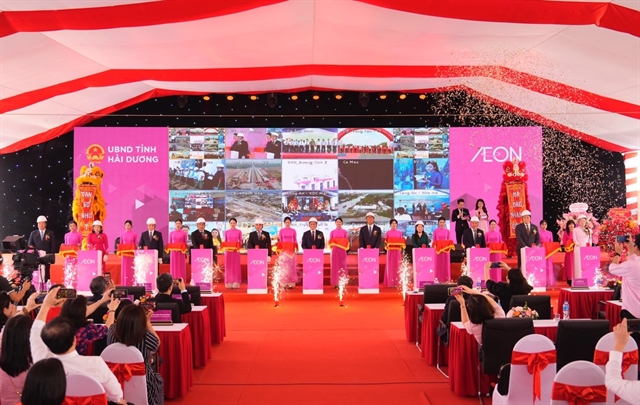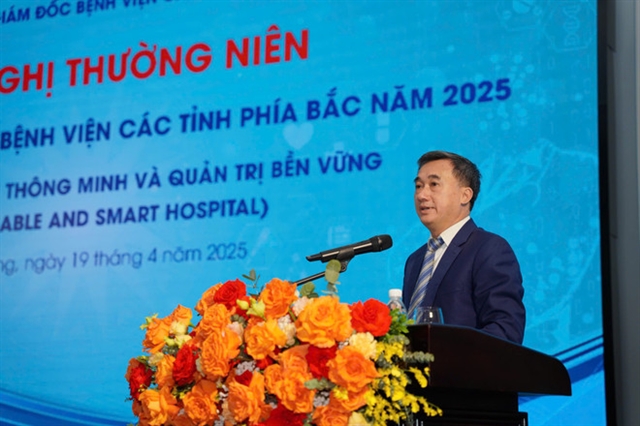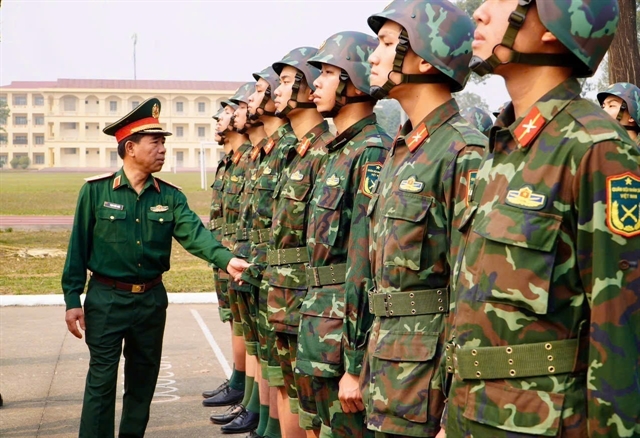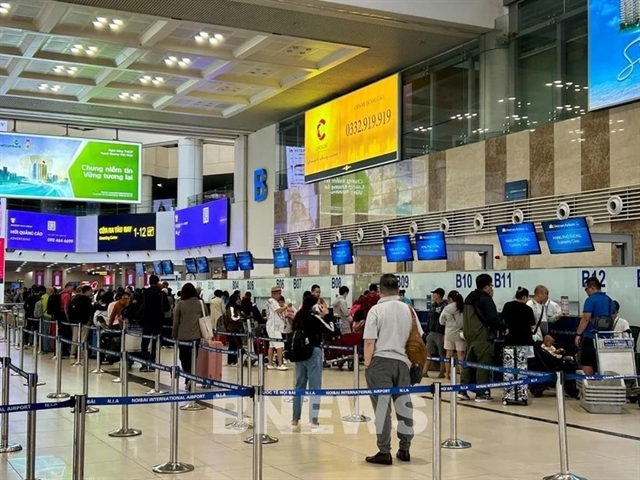

A short story by Huệ Ninh
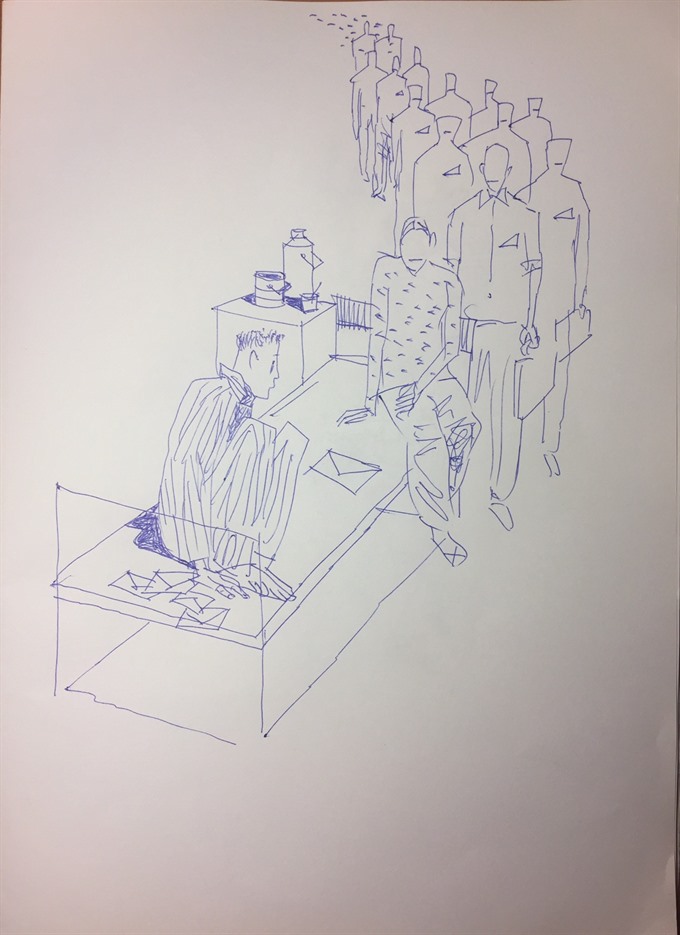 |
| Illustration by Đào Quốc Huy |
by Huệ Ninh
Mr Toàn was taken to Cancer Hospital K. in Ha Noi a month ago. His two sons: Phương, the elder brother, and Bình stayed in the clinic to look after him, each a day at a time. Hảo, the former’s wife, and her younger sister-in-law, were both exempted from visiting due to their poor health. Still though, every two days Hảo, who had just given birth weeks before to a baby boy and some twenty kilometres from Hà Nội, came to the clinic on motorbike to visit her father-in-law. Bình’s wife, who lived in the country, was suffering from stomach problems and rarely visited him.
Although the old patient’s lung operation was planned for the following day, Hảo was busy taking care of her little boy while she had such a high fever that she was unable to visit her father-in-law. All she could do was phone her husband to ask if he might come home for dinner.
“Oh no! I’m looking for board and lodging for lots of relatives here,” he answered.
During the old man’s long stay in hospital, in addition to his relatives and neighbours, many people from all walks of life came to visit him: association and ex-office representatives, war veterans and his children’s and grandchildren’s schoolmates. From eleven o’clock to two in the afternoon, they all, one after another, in group or each individual, surrounded him. Many days, he couldn’t finish his lunch or nap. Instead, he just shook hands, answered their questions and accepted envelopes of money. Due to this exertion his operation was postponed to give him another month to stabilise his health.
During that time, Phương, besides caring for his father, had to earn more money for the old man’s illness and welcome and provide the visitors with board and lodging, even pocket money for some.
Oddly enough, Phương’s younger aunt, who had been ill for a long time, at the news of Mr Toàn’s treatment in Hà Nội, immediately left home to visit her elder brother and to get a check-up, on Phương’s dime.
“What possessed her to behave so selfishly?” Hảo complained to her husband. “Caring for Dad’s disease in the hospital is hard for us! Worse still, now so many guests hace come, expecting us to look after them!” she added.
“It’s our moral obligation, darling,” Phương said to his wife. “Money doesn’t matter much. We’re willing to spend it. Besides, they all come to Dad out of their love and respect for him. This speaks volumes for rural people, honey,” he went on.
Sometimes, he was so busy and tired that he had to phone her for help: to take a few of the relatives home, which frustrated her. Not long after childbirth, she was up to her ears in different jobs: taking her post-graduate course, breastfeeding her baby boy and working at the office. What’s more, their relatives’ movements to and fro between her house and the hospital made her house so busy.
Unfounded rumours had it that sometimes the relatives were abandoned in the big city due to Phương’s work.
“What we need is the visitors’ understanding. But we never get it,” exclaimed Phương. “They treat us like hot, steaming garbage because we live in the city,” he added in a sad voice.
* * *
Mr Toàn’s operation was mere days away. The numbers of visitor coming to him increased with every passing day. They all looked forward to meeting him again, if the worst came to the worst.
Hảo was in two minds. She couldn’t decide whether to visit him, as she had a high fever. Not until late at night, would her husband return home, exhausted.
“Darling, get some votive offerings to ask our ancestors for blessings,” he told her before going to bed one night.
“Yes, certainly!”
“Tomorrow your mother will arrive,” he added.
“Oh dear, what for? She’s still very ill!”
“It’s her decision. Take care of our child. Burn a few joss-sticks for her safety.”
She was going to ask him more but she felt dizzy before collapsing into bed. Sudden, the phone rang noisily.
“My dear, if you’re still unwell, you’d better take a few painkillers so you can visit your father-in-law!” Hảo’s mother said on the phone. “If anything happens to him during the operation, you’ll be sorry your whole life, my beloved daughter.”
Following her advice, Hảo decided to visit him, even though she was sweating heavily and coughing terribly due to smoke and dust. Reaching the hospital, she found everybody having lunch in its cafeteria.
Mr Toàn’s operation would be performed to remove a tumor in the morning. Nobody was allowed to see him in the operating theatre. After lunch, they gathered at a roadside refreshment stall nearby to disparage urban life in an aggressive manner: fruits and vegetables contaminated with toxic chemicals, air and water polluted with dust and smoke, food prepared in an unsafe manner, stuffy and dim houses, streets crowded with heavy traffic and pavements in disorder and so forth and so on.
“I’m here just because of my seriously ill uncle; otherwise, I’d never set foot here again,” one elderly man observed scornfully.
“Look, there are no-smoking notices on the walls of all public buildings, yet smokers can be seen everywhere, even in this hospital lounge. They just smoke and smoke, regardless of the dirty looks I give them,” remarked an old woman.
Hảo glanced at her speechless mother-in-law, weary and dreary, with a small CD player in her hands. “Amida Buddha! Amida Buddha! I had no affection for your father a long time ago for he has made me so miserable all my lifetime. Amida Buddha! Amida Buddha! The reason for my visit is to avoid everyone’s contempt for neglecting my obligation, that’s all.”
Although Hảo was exhausted, she tried to show that she was strong and ready to help if necessary.
A moment later, Phương came to the stall to tell the visitors that his father’s operation had been a success and he was now in the post-surgery room. Yet, except for medical workers, no one else was permitted to visit.
Suddenly, his phone rang while he was jotting down the names of those present. It was his uncle’s wife saying that she was sorry for being unable to reach the hospital to congratulate Mr Toàn on his successful operation.
“Dear Mum and Phương, you don’t need to stay here any longer. You’d better go home as soon as possible,” he mumbled.
Both of them returned home; each, to their place of course.
Poor old woman, reaching home, she fainted! Her grandchild had to ask a district clinic’s GP to aid her.
As for Hảo, she felt so tired after her trip home that she needed an IV drip.
“Yesterday, Bình’s wife visited Dad with her little kid,” Phương told his wife the following day.
“Really? She was being treated for her stomach issues while her little child is still unwell. Worse still, it took them lots of time to get to the hospital. What’s the use of visiting Dad?” she said surprisingly.
“What an idea! It’s the thought that counts, you see,” said Phương. “Since Dad’s operation, you haven’t called him to enquire after his health!” reproached Phương.
“You’ve told me about his illness every day! I don’t need to know any more,” she objected angrily.
“That’s not the issue! Your concern would please him.”
Suddenly, Phương’s mobile phone rang. It was Bình. “I’ve just come back home. My wife and child are in district hospital. You’d better return to Hospital K. to see to Dad’s health,” he urged his elder brother.
Phương collapsed on the floor. At once Hảo took him to the local clinic.
“Your husband had a stroke,” concluded the doctor on duty.
During her husband’s treatment, Hảo did not dare to let anyone know anything about his illness. She was afraid that if their relatives would visit him like in Hospital K., the next person to go to clinic would be herself.
* * *
When Mr Toàn left Hospital K., he recovered from the operation with few complications. His wife held a party with twenty trays full of food for their relatives and neighbours to mark the event. Furthermore, Phương had recovered from his stroke. “The sum of money saved up for my Dad’s X-ray treatment has been left unused. So, it should be given to charity,” he declared.
Back at home in the city, Phương’s family was given a lot of rural things: chickens, fish, eggs, vegetables of all kinds, sweet potatoes, garlic, onions, beans and groundnuts.
“We got these gifts because of our kindness offered to our relatives from the country, you see?” he told his wife.
“But we won’t be able to finish all of this!” she said. “Every time you come back from the country you bring back all this crap we can’t use,” she criticised him.
“I accept the presents to please my relatives. I also pretend I’m thrilled to receive them. We can throw them away if we don’t use them,” he laughed.
“What a sham!” she blurted out.
Although she made fun of her husband, she knew he wouldn’t change. She was well aware that when her husband counted which relatives were present in the hospital, his action was merely tit-for-tat, something everyone did. “Is that a matter of score keeping or attachment?” she asked herself.
Translated by Văn Minh

